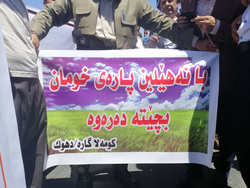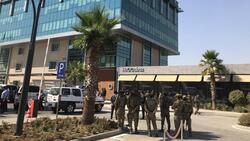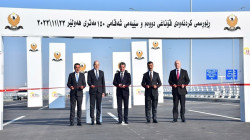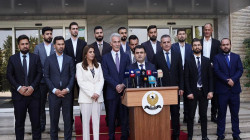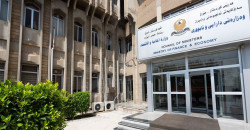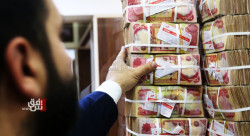Erbil emphasizes need for normalization in Kurdish areas and ending military control
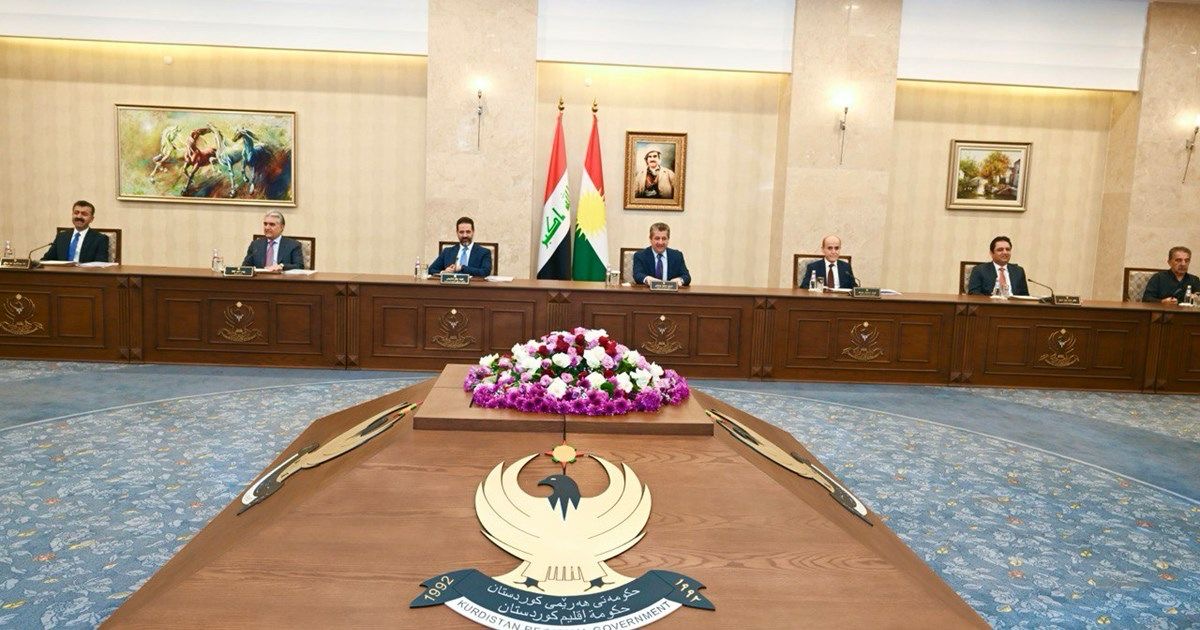
Shafaq News / In its weekly meeting held on Wednesday, the Kurdistan Regional Government (KRG) stressed the necessity of normalizing conditions in Kurdish territories and ending constitutional violations within these regions.
Additionally, KRG urged its ministries to continue their coordination with the Federal Ministry of Finance to secure employee salaries.
The meeting, presided over by Prime Minister Masrour Barzani and attended by Deputy Prime Minister Qubad Talabani, addressed several key issues concerning the administration and welfare of the Kurdistan region and its residents.
The first item on the agenda was the report presented by Fahmi Burhan, Head of the Kurdistani Areas Outside the Region Administration. He provided a detailed overview of the current situation in these areas, proposing a roadmap for these territories based on Article 140 of the Constitution.
This plan involves the KRG, federal government, and parliament in efforts to resolve the status of these regions, restore them to Kurdistan, and address the administrative, security, and military conditions there.
Burhan highlighted the need for a “unified national stance against the policies of Arabization and other constitutional violations, including land confiscation and the displacement of Kurdish residents.”
PM Barzani commended the report, expressing “deep appreciation for the resilience of these areas and their unwavering Kurdish national stance.” He reaffirmed that “Kurdistan would not abandon these territories,” and called for resolving all issues per the constitution.
Subsequently, the Deputy Prime Minister commended the efforts of the head of the commission and his colleagues, expressing support for the proposal of a roadmap and a national Kurdish policy for these areas.
He emphasized the importance of serious efforts at the Regional institutions and federal government levels to take responsibility for implementing Article 140 of the constitution.
Additionally, he stressed the immediate cessation of all current actions and measures in these areas that undermine the spirit of community coexistence.
The Council of Ministers called for the normalization of conditions in the Kurdish areas and the end of the imposed military presence. It also demanded an end to all violations and assaults against the citizens of these areas.
The Council emphasized the need to resolve existing issues and disputes within the framework of the constitution, particularly through Article 140.
The Council of Ministers also formed a high-level ministerial committee to study the draft roadmap for the Kurdish areas outside the administration of the Region.
This committee is tasked with developing an implementation plan for the roadmap and addressing the land issue, which are priorities for the government and has been a major demand of the Kurdish liberation movement.
The Council emphasized its duty to continue defending these areas and to never overlook this issue despite attempts to distract the region with other matters.
The second agenda item involved a report on the appendices to the federal budget law for 2024-2025, approved by the Federal Council of Ministers on May 19, 2024. The KRG's negotiating delegation, led by Finance and Economy Minister Awat Sheikh Janab, reviewed these appendices to ensure the allocation of salaries.
The Council of Ministers commended the Regional delegation for conducting the necessary final review of the schedules aimed at securing salaries.
They urged members of the Kurdish blocs in the federal parliament to unite in defense of the Region’s rights and entitlements in the federal budget for the fiscal years 2024 and 2025.
The Council also directed the Regional government’s negotiating team to coordinate with Kurdish representatives in the federal parliament to safeguard constitutional interests and salary entitlements, particularly since the Kurdistan Region has met all its commitments.
Notably, on May 26, 2024, the Kurdistan Region’s Ministry of Finance and Economy deposited 85,199,634,000 dinars in the federal treasury’s account as the Region’s share of non-oil revenues for February 2024.
Additionally, significant efforts are being made to facilitate the domiciliation of salaries in the Region through the Iraqi Trade Bank (TBI). Several salary recipients' necessary data and information have been sent to the bank to open accounts.
Furthermore, audit reports for the salary lists of Asayish and Peshmerga personnel have been completed and sent to the federal government, who have not received their salaries for over 50 days.
The Prime Minister emphasized the necessity for all ministries to continue coordinating with the Federal Ministry of Finance to ensure the disbursement of the Region’s salaries.
He stressed that the list of salary recipients and the trial balance of the Region’s revenues and expenditures must be sent to the federal government promptly and without any shortcomings.
In return, the federal government must fulfill its constitutional responsibility by sending Kurdistan’s share of the budget, thereby reassuring the salary recipients in the Region.
Minister of Labor and Social Affairs Kwestan Mohammed presented a ministry report on strengthening the Youth Small Projects Support Fund and offering additional facilities in the third item on the meeting's agenda.
This fund provides financial support to small and medium-sized enterprises as part of the "Prosperity" project, a joint public-private sector initiative to offer entrepreneurs low-interest loans.
in conclusion of the meeting, Minister of Reconstruction and Housing Dana Abdul Karim presented a report addressing the condition of major roads between cities in the Kurdistan Region, focusing particularly on the impact of tanker trucks and heavy vehicles on the road connecting Erbil and al-Sulaymaniyah.
Based on this discussion, the Cabinet directed the Ministry of Reconstruction and Housing to coordinate with the Prime Minister's Office, the Cabinet Secretariat, the Ministry of Finance and Economy, and other relevant entities to review this matter from legal perspectives, including road project contracts, mechanisms, and procedures.
This initiative aims to expedite the completion of dual-carriageway road projects linking major cities, especially between Erbil and al-Sulaymaniyah.
